SFC Regulatory Entity

In this article
The Securities and Futures Commission of Hong Kong is known as the SFC. As a non-governmental statutory entity, they regulate the securities and futures markets in Hong Kong. Securities and Futures Commission Ordinance (SFCO) was the legal framework under which they began to work.
The whole commission works independently and is fully funded by licensing fees and transaction levies.
Understanding the securities and futures commission (SFC)
Hong Kong’s Securities and Futures Commission administers the laws governing securities and futures markets. The primary objective of the regulatory body is to facilitate the development of the financial market in the future. In addition, they maintain and carry out high levels of efficiency, fairness, transparency, and competitiveness over the futures markets and securities.
The organisation is also promoting a public understanding of investment and corporate finance policy to protect investors. As a result, even certain regulations will reduce crime in the future and bring financial stability to Hong Kong’s financial market.
Main role
In 1989, the Securities and Futures Commission (SFC) became an independent statutory body. Securities and futures markets in Hong Kong have been regulated by them for an ongoing successful financial business.
Under the Securities and Futures Ordinance (SFO) and subsidiary legislation, they have been empowered with remedial, disciplinary, and investigative powers.
Being the financial regulator in Hong Kong, SFC is responsible for protecting and strengthening the soundness of the Hong Kong financial market. This will contribute towards a massive advantage towards the industry and the investors.
What are the main operations of the SFC regulatory entity?
A few of the operational units which are part of Hong Kong’s SFC are the policy, corporate finance, enforcement, investment products, China, licensing, supervision of markets and intermediaries supervision.
Each of the operational units in SFC is supported through the department of legal services and the division of corporate affairs.
SFC is accountable to regulate both licensed individuals and corporations. Their major operations are:
- Enforcement and setting of market regulations and further investigation of any misconduct or breaches.
- Supervision and licensing of market participants who fall under SFC regulatory jurisdiction.
- Managing certain market operators, including clearing houses exchanges, share registrars or alternative trading platforms.
- Authorisation of investment products and offering some associated documents to the investors.
- Overseeing the mergers and takeovers of various public companies and highlighting The Stock Exchange of Hong Kong Limited’s regulation of the listing matters.
- Helps in assisting all the overseas and local regulatory authorities.
- Educate the investors on different market concerns such as rights, risks and responsibilities.
How does SFC fulfil its corporate social responsibility?
SFC is also committed to providing corporate social responsibility (CSR) and its basic principles for operational practices and decisions. Being a statutory regulator, CSR makes sure that the broader conduct is fully consistent with the public positions.
CSR policy is aiming to:
- Adopt certain practices and policies for the demonstration of positive endowment towards society.
- Improve the employer’s character.
- Raise your profile among the general public and the stakeholders.
To maintain regulations in high standards, SFC is even fostering effective regulation and brings about enforcement cooperation. Some of their fellow regulators are mainland China, Hong Kong and a few overseas markets.
Discussion on common matters and interests is carried out, which requires collaboration.
Plus, SFC has played a major role in setting some high international standards by participating in some global forums. In such forums, they are covering some major securities regulatory policies. This includes the secondary markets, investment products, listing regulation, enforcement, credit rating agencies, etc.
How can you apply for the authorisation of an SFC license?
To apply for the SFC license, the company must be linked with Hong Kong. Furthermore, they should also be registered with the Companies Registry of Hong Kong (non-Hong Kong companies).
A proper examination is conducted by the regulatory body for both the companies and individuals. SFC will examine if the application is suitable for the license or not.
A few factors which can affect the issuing of licenses are:
- Solvency or the financial status
- Qualifications, educational or experience related to work roles in a company
- Capable enough to execute different regulated activities in a lawful and fair manner
- Character certification, reputation or the financial stability of applicant or the organisation
- Apart from it, every single licensed company should be appointing two trustworthy officers. They will supervise the regulated activity and its conduct.
- Out of the two officers, one should be the executive director or the board member. And the second officer should be available all the time for the supervision of the business.
Required documents
While filing an application, the application should pay a prescribed fee along with all the supporting document attachments. Required documents are:
- Business plans
- Compliance manuals
- Application forms
- Extra supplements
All the above documentation should be associated with the licensed applicant or the proposed officers and the substantial shareholders.
Major requirements for SFC licensing
SFC has the right to reject any application if it does not meet the licensing requirements. Therefore, it is imperative that the applicant fits within the requirements and complies with them.
A company should be registered under the Hong Kong company registry. Business plans should be properly structured, internal controls should be performed, and they should be qualified personnel.
Companies should only be included in regulation if they know how to conduct the regulated activities within the regulatory laws.
The SFC will investigate and access the company’s business plan, compliance policies, and international control documentation. Accordingly, the substantial shareholders should hold 10% of the interests or the voting rights.
Bottom line
As a result, SFC has its primary responsibility to maintain and promote the futures and securities industry competitively. Their main purpose is to enforce and set market regulations and investigate possible violations of market misconduct.
In addition, SFC regulates exchanges, share registrars, clearinghouses and often improves market infrastructure by issuing licenses and overseeing their operations.
Jason Morgan is an experienced forex analyst and writer with a deep understanding of the financial markets. With over 13+ years of industry experience, he has honed his skills in analyzing and forecasting currency movements, providing valuable insights to traders and investors.
Forex Content Writer | Market Analyst
Relevant Posts

SIBL Regulatory Entity
[top_three_brokers] The Social Islamic Bank Ltd (SIBL) is a top-leading and renowned second-generation commercial bank…
Read more

FINMA Regulatory Entity
[top_three_brokers] FINMA stands for Swiss Financial Market Supervisory Authority. As a federal supervisory authority, it…
Read more

BaFin Regulatory Entity
[top_three_brokers] A German Financial Authority, Bundesanstalt für Finanzdienstleistungsaufsicht, is abbreviated as BaFin, known as Federal…
Read more

FC Regulatory Entity
[top_three_brokers] FC stands for Financial Commission, which is an independent international body for brokers and…
Read more

FCA Regulatory Entity
[top_three_brokers] Currently, the Financial Conduct Authority (FCA) regulates the financial services industry in the UK…
Read more

ACPR Regulatory Entity
[top_three_brokers] ACPR is the abbreviation of “Autorité de Contrôle Prudentiel et de Résolution". It was…
Read more

PRA Regulatory Entity
[top_three_brokers] PRA stands for Prudential Regulation Authority. It works as a regulatory and supervisory authority…
Read more

FSMA Regulatory Entity
[top_three_brokers] The Financial Services and Markets Authority is the main agency for financial regulation in Belgium. As…
Read more

VFSC Regulatory Entity
[top_three_brokers] The Vanuatu Financial Services Commission is a regulatory organisation that supervises and regulates Vanuatu's…
Read more

LSE Regulatory Entity
[top_three_brokers] LSE Group (London Stock Exchange Group) is a global provider of financial market infrastructure…
Read more
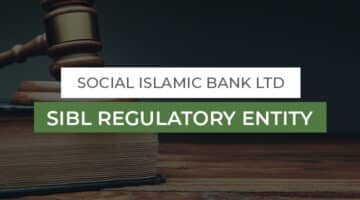
SIBL Regulatory Entity
[top_three_brokers] The Social Islamic Bank Ltd (SIBL) is a top-leading and renowned second-generation commercial bank…
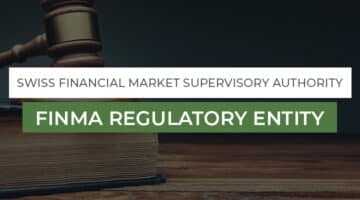
FINMA Regulatory Entity
[top_three_brokers] FINMA stands for Swiss Financial Market Supervisory Authority. As a federal supervisory authority, it…
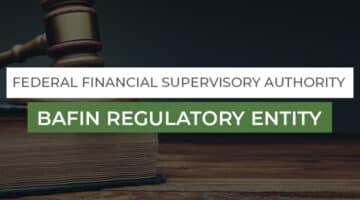
BaFin Regulatory Entity
[top_three_brokers] A German Financial Authority, Bundesanstalt für Finanzdienstleistungsaufsicht, is abbreviated as BaFin, known as Federal…
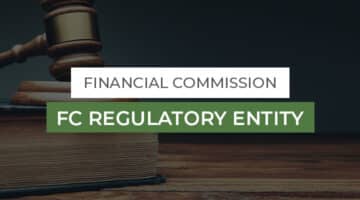
FC Regulatory Entity
[top_three_brokers] FC stands for Financial Commission, which is an independent international body for brokers and…

FCA Regulatory Entity
[top_three_brokers] Currently, the Financial Conduct Authority (FCA) regulates the financial services industry in the UK…

ACPR Regulatory Entity
[top_three_brokers] ACPR is the abbreviation of “Autorité de Contrôle Prudentiel et de Résolution". It was…

PRA Regulatory Entity
[top_three_brokers] PRA stands for Prudential Regulation Authority. It works as a regulatory and supervisory authority…
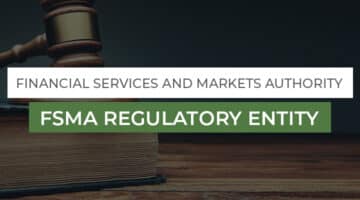
FSMA Regulatory Entity
[top_three_brokers] The Financial Services and Markets Authority is the main agency for financial regulation in Belgium. As…
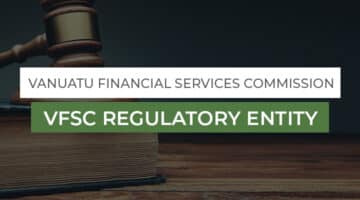
VFSC Regulatory Entity
[top_three_brokers] The Vanuatu Financial Services Commission is a regulatory organisation that supervises and regulates Vanuatu's…
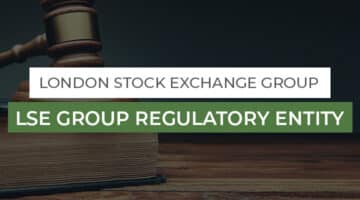
LSE Regulatory Entity
[top_three_brokers] LSE Group (London Stock Exchange Group) is a global provider of financial market infrastructure…


